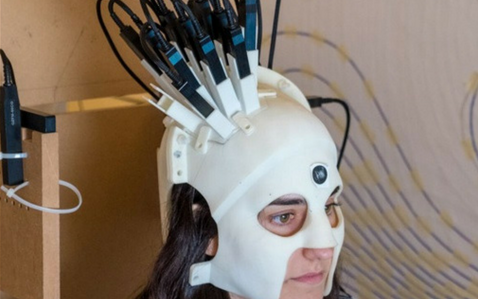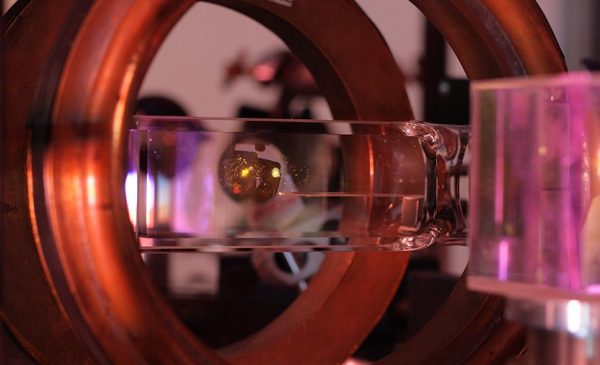A wearable brain scanner that can be fitted on moving people has been developed by colleagues at the University of Nottingham and University College London as part of a research project funded by Wellcome. The scanner allows researchers to measure brain activity in people doing normal tasks, helping to detect and monitor diseases.
This development has been detailed in the online nature journal, which explains how brain imaging technique Magnetoencephalography (MEG) allows ‘direct imaging of human brain electrophysiology by measurement of magnetic fields generated at the scalp by neural currents.’
This project builds on research undertaken by the Quantum Technology Hub for Sensors and Metrology’s Magnetometry work package, and is in the process of being allocated a portion of the Hub’s Partnership Resource Fund.
It is hoped that this technology, which has received extensive media coverage, will help people with neurological and mental disorders, particularly children, and will have ‘transformative potential across a range of neuroscientific and clinical applications where knowledge of brain electrophysiology is informative.’ Future developments of the technology intend to focus on children with epilepsy, as well as those diagnosed with psychoses and neurodegenerative conditions such as Alzheimer’s and Parkinson’s diseases.
Professor Kai Bongs, Director of the Quantum Technology Hub, said: ‘The UK National Quantum Technologies Programme has triggered new research into the significant potential for improving brain health’.
‘This has not only led to additional funding and new partnerships with academia and beyond, but has also enabled a completely new way to image brain functions, while the subject is free to move around’.
‘This ground-breaking research will set the stage for many new discoveries about how the brain works and potentially open new ways to diagnose brain disorders, from neurodevelopmental disorders to neurodegeneration. This exciting work continues to be supported by the UK National Quantum Technology Hub in Sensors and Metrology.’
The Quantum Technology Hub one of four Hubs – each with a particular research focus – making up the UK National Quantum Technologies Programme, which is funded by the Engineering and Physical Sciences Research Council (EPSRC).




